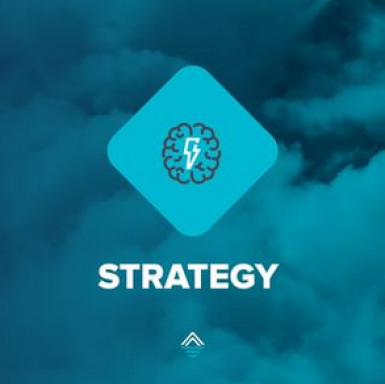Marketing is essential for the growth of your business.
Every book you read about business, every Commerce degree, every sales meeting talks about marketing in one way or another.
Marketing is an essential function of business, and also one of the easiest ways to throw money down the drain if not done effectively and efficiently!
Whether you’re reviewing the way your marketing function currently operates, or you’re ready to invest a greater budget of time and resources to marketing and want to make sure you get the best return on investment – this article will help you make a plan with information on:
- Why marketing is so important for your business.
- What are the essentials ingredients and inputs you need for marketing?
- How to best resource your marketing – should you hire or outsource?
So, let’s dive in and start by considering why marketing is such an important function of business:
Marketing will help your business to:
- Build a reputation and brand awareness.
- Increase credibility and attract the right customers to your business.
- Set expectations for pricing, services and products.
- Generate new sales leads.
- Increase sales and revenue.
- Turn customers in to advocates, foster loyalty and retention.
- Use data and trends to make better decisions that align with customer behaviour.
- Stand out, innovate and differentiate yourself in the market.
- Protect your position in the market, or establish a new position.
- Adapt to market changes.
In short, if you asked our Marketing Strategist, Emma Burdett, what her definition of marketing is, she would tell you:
“Marketing is about reaching the right people, in the right way, and with the right message that leads to great outcomes for the business”.
Essential ingredients for effective and efficient marketing in your business:
Now, you know that marketing is very important for any business. The next question on your mind will likely be about what’s required to have efficient and effective marketing humming along for your business.
Here are some of the essential ingredients our experience has taught us:
Business strategic goals
Sounds simple, right? If you don’t know what you’re trying to achieve for the business in the next 12 months and the next 3 years, how will you know how to leverage marketing (and all the other functions of your business) to make it happen?
Marketing budget
How much do you actually want to invest in marketing for your business each year? Is it a percentage of revenue? Many resources mention numbers such as 2 to 5% of annual revenue to maintain steady growth, or 10 to 15% for aggressive growth.
Marketing strategy
Make a plan, then execute the plan! A well crafted marketing strategy is easy to follow and specifically outlines the who, how, where and why for all activities and allocation of budget. You wouldn’t build a house without a plan, so why should you be ‘throwing’ time and money at marketing without a plan for all involved to follow?
Marketing activity schedule
Your marketing strategy is missing one key piece of the puzzle – when. Strategy documents are the blueprint, the activity schedule is the quick reference guide to make sure everyone knows what needs to be done and by when on a monthly, quarterly or annual basis.
Templates, processes and procedures
While marketing may seem like a ‘softer’ function of business, you need to remember that many marketing activities are repetitive. Utilising software, templates and processes will ensure efficiency whilst also maintaining consistency from anyone involved.
Content, content and more content
Content is king in this day and age. Whether your key focus is on social media, advertising, PR, search engine optimisation or nearly any other lead activity… you need content to make it effective! Factor in the channels you’re using, who you are building content for, and how you can most efficiently collect all the goods! From images to videos, information to share and written content. PRO TIP – Marketing is best done as a team sport, include others in your team to help you collect content. Changes are someone loves to take photos or make Instagram Reels, so embrace that passion for your business.
People
To follow the tip below about marketing, being a team sport, your marketing team should include input from a few people. When you think about all the moving parts that fall under the marketing umbrella (eg. strategic planning, branding, design, copywriting, website development, automation building and maintenance, analytics reviewing and more) these all require different skill sets, knowledge and experience. It’s very unusual to find a unicorn that is willing and able to do it all, to a high standard.
Consistency
Possibly the most important ingredient. If you plan things properly and resource your marketing correctly, you will maintain consistency with your marketing. The occasional push for a few weeks will not get you kicking big goals for any marketing activity.

How to best resource the marketing function of your business:
Chances are, you have someone in the office doing some form of marketing for you. It might be the admin person or receptionist putting the occasional post on social media or sending out the email newsletter you mentioned a few weeks ago. Your sales or business development people might put something on LinkedIn from time to time too.
As your business grows, or you set out to actively grow, you will find it increasingly challenging to manage all aspects of marketing on your own or for your current staff to proactively manage and execute it well on a regular basis.
That’s when it’s time to bring in a dedicated marketing person.
Now for the age ol’ question … to employ in house or outsource. Here are our thoughts and things to consider when making this decision:
In-House Marketing – The pros and cons
Pros
- Full alignment: Having an in-house marketing person means they are immersed in your company culture, goals, and vision, enabling seamless alignment between marketing efforts and overall business objectives. They have a direct link to other team members to feed them content ideas and suggestions too.
- Immediate availability: With an in-house marketing person, you have a dedicated resource readily available to address urgent marketing needs, make real-time adjustments, and respond swiftly to market changes. This can be particularly beneficial when executing time-sensitive campaigns or capitalising on emerging opportunities.
- Deep knowledge of the business: In-house marketers possess an intimate understanding of your products, services, target audience, and industry nuances. They can leverage this knowledge to create highly tailored and effective marketing campaigns, resonating with your customers on a deeper level.
Cons
- Limited expertise and skill set: Marketing is so broad these days! That’s why we have over 10 roles listed in our Ultimate Marketing Team guide. You simply cannot expect one person to have the skills and willingness to do it all.
- Higher Costs: Building an in-house marketing team involves significant financial investments, including salaries (especially for experienced people), software and licenses. A lot of your marketing budget can be spent on these things, leaving you with very little for other activities.
- Lack of fresh perspectives: In-house marketers may become entrenched in their routines, leading to a potential lack of innovation and fresh perspectives. This often happens when they have been in the same industry for some time and are in ‘cruise mode’.
- Isolation and loneliness: Effective marketing relies on creativity, and creative people like to be surrounded by other creative folk.
- Management of this role: Even an experienced marketing person will still need some guidance from the leadership team, especially if this role is new. Career progression can be a challenge for solo marketing roles in businesses also.
Outsourced Marketing – The Pros and Cons
PROS
- Access to full spectrum expertise: Marketing agencies or consultants working in collaboration with each other often bring a diverse range of skills and experience to the table.
- Varied insights: They work with multiple clients across various industries, allowing them to stay updated on the latest marketing trends, technologies, and strategies. This expertise can be invaluable in driving results for your business.
- Scalability and flexibility: Outsourced marketing services provide the flexibility to scale your marketing efforts up or down based on your business needs. As your business grows, you can tap into the agency’s resources and expand your marketing initiatives without the burden of hiring and training additional staff.
- Cost-effective solution: Instead of incurring the overhead costs associated with hiring an in-house marketing team, you can leverage the agency’s expertise and pay for specific services or projects on a contractual basis.
Cons
- Less immediate availability: When working with an external agency, you may need to consider the turnaround time for implementing marketing strategies or making adjustments to campaigns.
- Potential misalignment: Outsourced agencies work with multiple clients simultaneously, which means their attention could be divided. Regular contact, planning and communication with your outsourced marketing team is essential!
- Limited knowledge of your business: No one knows your business like you do. Outsourced marketers rely on your input and collaboration to gather relevant information. Close collaboration and effective communication are crucial to ensure your marketing is efficient and effective.
What About a Hybrid of Both In-House and Outsourced Marketing?
This is where the magic happens, if you ask us! Having a person in the business that is responsible for leading the marketing can be a game changer. This person doesn’t need to be a full time FTE dedicated to marketing only – but it won’t work if it’s the CEO, General Manager or Managing Director.
As a minimum, we suggest having someone part-time to coordinate between internal staff, clients and the outsourced marketing partners. The strategic planning, marketing performance management and fresh ideas can all be outsourced to the right marketing agency – along with a lot of the ‘doing’ when it comes to marketing activity.
If you have a full time marketing manager in the seat, be sure to plan for enough marketing budget to outsource some activities to support them. They (and your marketing results) will thrive if they have other marketers to bounce ideas off and technical support to bring campaigns to life.
At Huddle Up, we are on a mission to help businesses embed effective and efficient marketing in to their day to day. We support a small number of businesses with monthly marketing services, and that will never change because:
We don’t work with businesses that directly compete with each other.
Our team is small and mighty, and we are all involved with your marketing in some way when you are a Monthly Marketing Support client with Huddle Up. With all our focus put in to great outcomes for your products or services in your market – it doesn’t leave the space for us to work with someone else in the same market.
We integrate with your business and feel like a part-time employee.
When we become your marketing team, we work from an email inbox on your server and interact with your internal platforms, people and processes as much as possible. We’ll spend as much time as we need in your office or online with your team as we need to truly understand the business, build rapport with everyone, and make marketing hassle-free for you.
Our outsourced Marketing Management Support packages can start from $2,000 + gst per month if you have someone internally to act as the coordinator with us. For businesses who don’t already have a person in the marketing driver’s seat, we can take on that responsibility and include more on-site and coordination time to make it all happen for you – these packages start from $3,500 + gst per month.
In conclusion
There is no ‘one size fits all’ approach when it comes to embedding effective and efficient marketing in to your business. You need to take into account things like your long term and short term goals, marketing budget and resources, the operational functions needed to maintain consistency.
If you are considering what will be best for your business, this is where Marketing Strategist, Emma Burdett, can really help. As a Business Strategist by trade, Emma really understands the importance of return on investment and practicalities to be considered for long term success.
Emma loves to chat and always has a gem or too to share. Book an obligation free 30-minute Discovery Call with Emma here, so you can tell her about your business goals and get some clarity on the best next steps to take.














